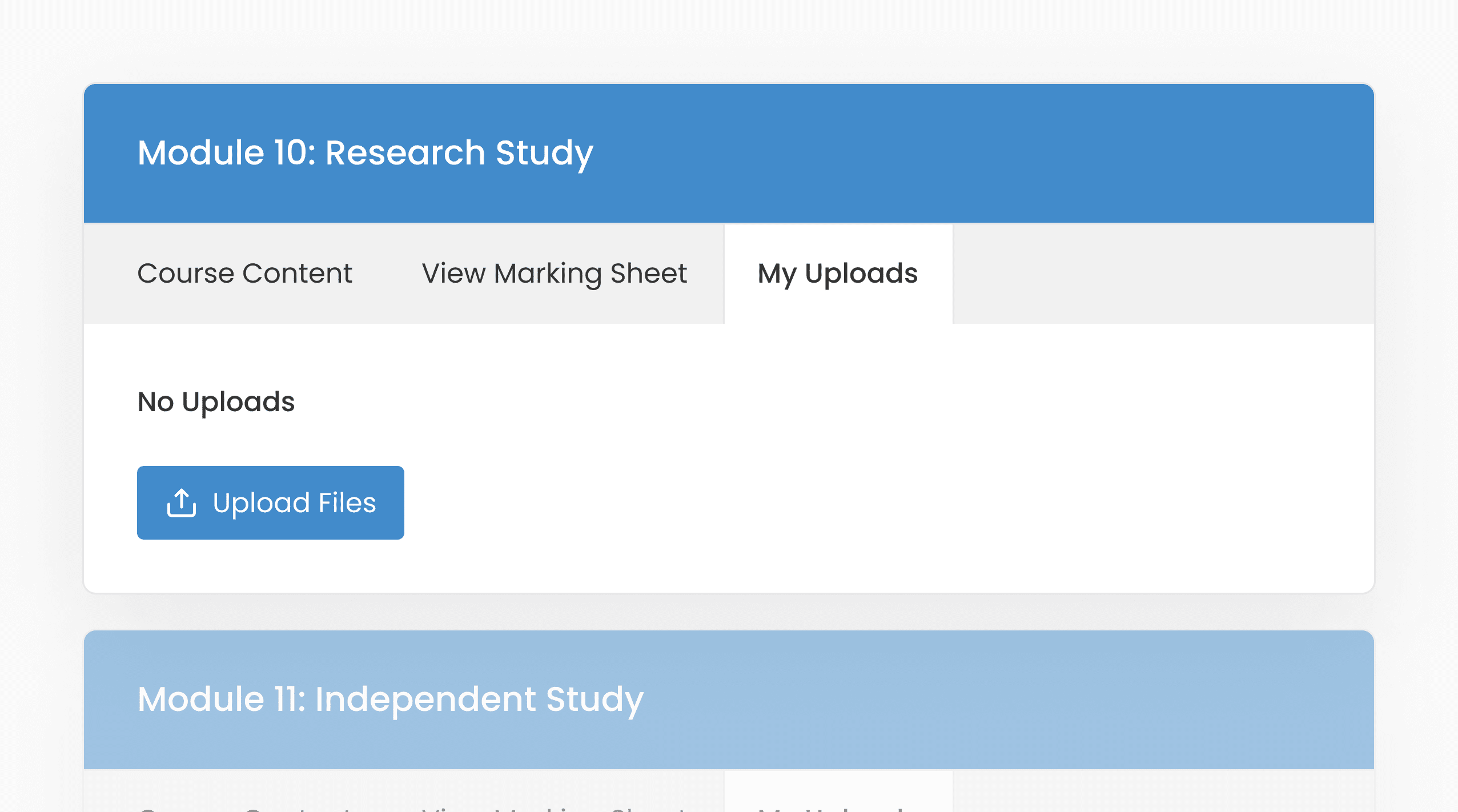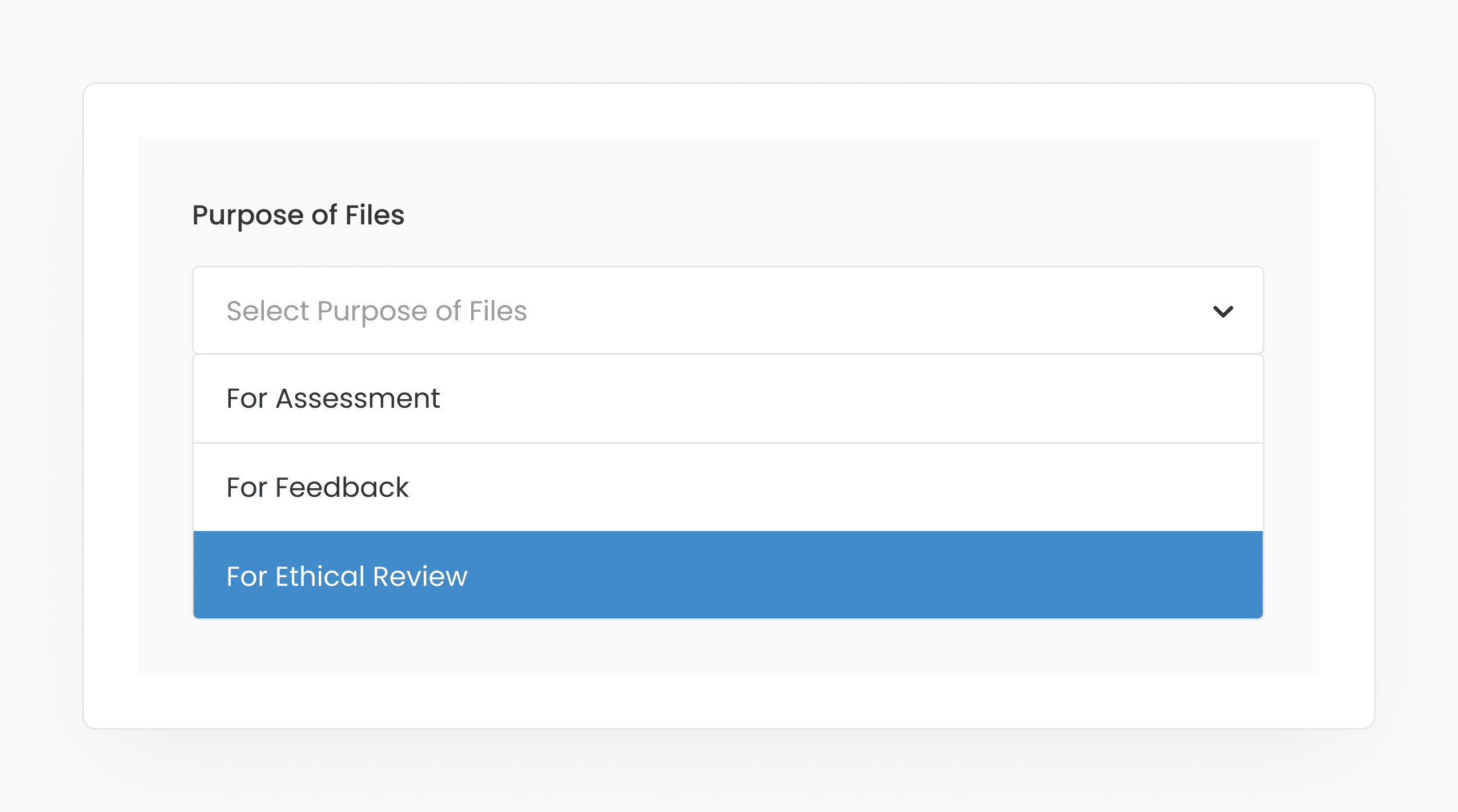Understanding Ethics Procedures
All primary research at the National Design Academy requires prior ethical approval. To obtain ethical approval, please ensure that the study-appropriate procedures are followed.
Need Help with your Ethics Approval Application?
Was this page useful?
Introduction
The National Design Academy requires that all research is subject to ethical consideration. If ethical approval is needed, all staff and students who wish to undertake research (academic or commercial) must obtain ethics approval prior to the commencement of research.
Primary data collection must not begin until the correct ethics approval procedures have been completed and written authorisation of the proposed study from the relevant ethics review panel has been obtained.


Contents
Click to navigate the page.
Pre-Requisites
It is important before beginning your Ethics procedures that you have read and understood the following pre-requisites. The files available here will be referenced throughout and assist greatly in the completion of your ethics approval process.
The Importance of Primary Research Methodologies
Guidance on Low Risk Research for UG and PG Students
In line with University policy, UG/PG research (approved at a programme level) should be low risk. In exceptional circumstances, medium risk research can be approved after consultation with the National Design Academy Course Director. The National Design Academy will not approve students to undertake high risk research.
Framework for Identifying Low, Medium & High Ethical Risk for UG and PG Students
This framework for identifying ethical risk sets out what is regarded as ‘more than minimal risk’ (low risk) in research ethics and provides guidance on what is regarded as medium and high risk. The list is not exhaustive nor prescriptive, and further guidance on the criteria can be sought from the National Design Academy Course Director, who may consult with university ethics advisors.
This framework for identifying ethical risk should be used in conjunction with the National Design Academy Formal Ethics Assessment and the DMU Research Ethics Code of Practice, and the relevant risk rating should be selected when submitting and reviewing an ethics application.
Statement on Retrospective Approval
In line with De Montfort University’s Code of Conduct (5.6) retrospective approval will not be granted for studies that have already been conducted or commenced. The National Design Academy will not take any responsibility for research that was conducted prior to approval of ethical application.
Retrospective approval can be defined as a researcher seeking ethical approval after they have completed part or all of their research. It is important that the correct workflow must be adhered to when submitting your ethics application, so please refer to the Ethics Application Checklist throughout the process.
The National Design Academy will not give retrospective ethical approval for studies which have already been conducted or have already commenced.
DMU Research Ethics Code of Practice
As an academic partner of De Montfort University, the National Design Academy has a responsibility to adhere to their research ethics code of practice. This means, as a partner student of the University, you must ensure you comply with this research ethics code of practice and that any research intentions you have within your course are approved by the National Design Academy before any research is undertaken.
The ethical code is provided collaboratively by the Academy and University to support students to meet the expectations of sound ethical practice and is available for your reference within the supporting templates, documents and resources section below.
The National Design Academy are responsible for processing research ethics applications for students studying with the Academy, and therefore request that the National Design Academy students follow the research ethics approval process as outlined on the Virtual Learning Studio (VLS). Your National Design Academy tutor should be your primary point of contact throughout this process. You should submit completed application forms and supporting information to your tutor via the VLS, not to the University.
All National Design Academy applications will be reviewed by National Design Academy tutors, who may consult with senior academic colleagues at the Academy before approval is granted (if applicable). Should further guidance from De Montfort University be required, your tutor will liaise with the University on your behalf.
Obtaining Digital Consent
When conducting a digital questionnaire or survey, you MUST ensure that participants have access to the terms and conditions outlined in the Participant Information Sheet. This can be done either by embedding the content at the top of the digital questionnaire or survey or by providing a link to the document hosted online.
Participants MUST also have the ability to explicitly consent to have read and understood these terms and conditions within the digital questionnaire or survey before submitting their answers.
See examples below.
Linked Example
My Study
Before completing this questionnaire please read and understand the Participant Information Sheet.
end of questionnaire...
Embedded Example
My Study
Before completing this questionnaire please read and understand the following:
<insert Participant Information Sheet here>
end of questionnaire...
Ethics Procedures Workflow for UG and PG Students
This Ethics Procedure Workflow provides you with a visual step by step guide to completing a research ethics application.
Ethics Pre-Screening Form
This form will help you to establish whether an application for research ethics approval is required. You should complete this form in collaboration with your tutor to ascertain if an ethics application is required.
This form should be completed and uploaded to the Virtual Learning Studio (VLS).
Note:Need help uploading your ethics approval documents? Visit our Ethics Approval Application Upload Screenshot Guide. See Guidance
Formal Ethics Assessment
Warning:Please ensure you complete your "Ethics Pre-screening Form" prior to completing your "Formal Ethics Assessment”.
Formal Ethics Assessment
Note:An Example "Formal Ethics Assessment" can be found in the "Supporting Templates, Documents & Resources" Section
Formal Ethics Assessment Checklist
To ensure your research ethics application can be fully considered in a timely manner, it is important that you complete your Formal Ethics Assessment correctly and that is it accompanied by all relevant additional forms and supporting documents.
This Ethics Application Form Checklist will help to confirm that you have provided all the necessary information before uploading it to the Virtual Learning Studio. Please use it to track your progress and do contact your Tutor for support if you have any queries.
Supporting Templates, Documents & Resources
DMU Research Ethics Code of Practice
Participant Information Sheet
The Participant Information Sheet is given to potential participants with written information about the study. Its purpose is to help potential participants to decide whether they want to take part and to provide relevant details, including contact details.
The document we have provided below includes the Participant Information Sheet template builder, which you should adapt to suit your proposed study. It also provides guidance to you, as the researcher, which you should use when setting up the template. Once adapted, you should include the template as part of your ethics approval application.
Warning:Please ensure you have read and understood the above section on "Obtaining Digital Consent" before completing your "Participant Information Sheet".
Participant Consent Form
The Participant Consent Form is to record the participant’s decision to take part in the study. Not only does it document the participant giving permission to involve them in the research, but it is also an agreement between the researcher and the research participant outlining the roles and responsibilities they are taking towards one another throughout the whole of the research and data processing activities.
Warning:Please ensure you have read and understood the above section on "Obtaining Digital Consent" before completing your "Participant Consent Form".
Parent or Guardian Consent Form
The Parent or Guardian Consent Form is to record the permission of parent(s) or guardian(s) for their child or ward to participate in the study. The National Design Academy recognises its statutory duty to safeguard children and vulnerable adults who may participate in any activity organised or managed by the National Design Academy. Therefore, it is a requirement of the National Design Academy ethics approval process that you evidence specific permission of parent(s) or guardian(s) with an approved consent form using the template below.
Not only does it document the parent(s) or guardian(s) giving permission to involve their child or ward in the research, but it is also an agreement between the researcher and the parent(s) or guardian(s) and the participant, outlining the roles and responsibilities they are taking towards each other throughout the whole of the research and data processing activities.
For the avoidance of doubt, for the purpose of safeguarding, children and vulnerable adults are defined as follows:
Child: A person under the age of 18. For the purpose of safeguarding, the fact that the child is living independently, or in further or higher education does not change their entitlement to protection.
Vulnerable Adult: A person over the age of 18 years who may be unable to protect themselves from abuse, harm or exploitation, which may be by reason of illness, age, mental illness, disability or other types of physical or mental impairment.
Warning:Please ensure you have read and understood the above section on "Obtaining Digital Consent" before completing your "Parent or Guardian Consent Form".
Community-based Participatory Research
Community-based participatory research (CBPR) is an approach that involves members of a community participating in the research and development of outcomes.
The document we have provided below provides guidance to you, as the researcher, on this type of research and the need to ensure strict systems are in place for robust and responsible ethical conduct.
A link to further guidance is provided.
COSHH Risk Assessment Form
Many materials and substances used in the workplace can harm your health, for example dusts, gases or fumes that you breathe in, or liquids, gels and powders that come into contact with your eyes or skin. Also, there could be harmful micro-organisms present that can cause infection, an allergic reaction or are toxic.
The law requires that materials used in the workplace that cause ill health must be adequately controlled, and this is the Control of Substances Hazardous to Health Regulations (COSHH).(Source: hse.gov.uk/coshh/basics/index.htm).
The National Design Academy (NDA) recognises its duty to comply with health and safety regulations, including COSHH, and strives to safeguard the health and wellbeing of all staff and students who may participate in any activity organised or managed by the National Design Academy, ensuring a healthy and safe working environment.
The following document provides a COSHH Risk Assessment template, and it is a requirement of the National Design Academy ethics approval process that a COSHH Assessment is completed and approved before any hazardous substance/chemical is to be used, however small the hazard is. Your completed COSHH Risk Assessment must be submitted alongside your ethics approval application and must be strictly adhered to at all times.
Health and Safety Risk Assessment Form
The National Design Academy (NDA) recognises its duty to comply with health and safety regulations and strives to safeguard the health and wellbeing of all staff and students who may participate in any activity organised or managed by the National Design Academy, ensuring a healthy and safe working environment. This involves dedicated approaches to risk management and robust implementation of control arrangements in line with National Design Academy health and safety and risk management policy, and this extends to cover the National Design Academy ethics approval assessment.
The following document provides a Health and Safety Risk Assessment template, and it is a requirement of the National Design Academy ethics approval process that a Health and Safety Assessment is completed and approved before any research activities are started.
Your completed Health and Safety Risk Assessment must be submitted alongside your ethics approval application and must be strictly adhered to at all times.
UK General Data Protection Regulation (GDPR) Guidance for Researchers
Example Formal Ethics Assessment
How to Upload Your Ethics Approval Application to the Virtual Learning Studio


Contact
Need help with your ethics approval application? Please reach out to your tutor via the Virtual Learning Studio (VLS). Alternatively, you can contact Degree Student Support at degreesupport@nda.ac.uk, and our advisors will gladly refer your query to a suitable member of the academic team for further assistance.
Virtual Learning Studio
Contact Degree Support
Need Help?
From course information to application support, our support team are always here to help.
National Design Academy
Driven by a shared vision: to empower the next generation of designers, innovators, and tastemakers.
The National Design Academy is part of the NDA Foundation.
© National Design Academy
Quick Links
Join Our Mailing List
Stay up to date with the National Design Academy by joining our mailing list
The National Design Academy is part of the NDA Foundation.
© National Design Academy